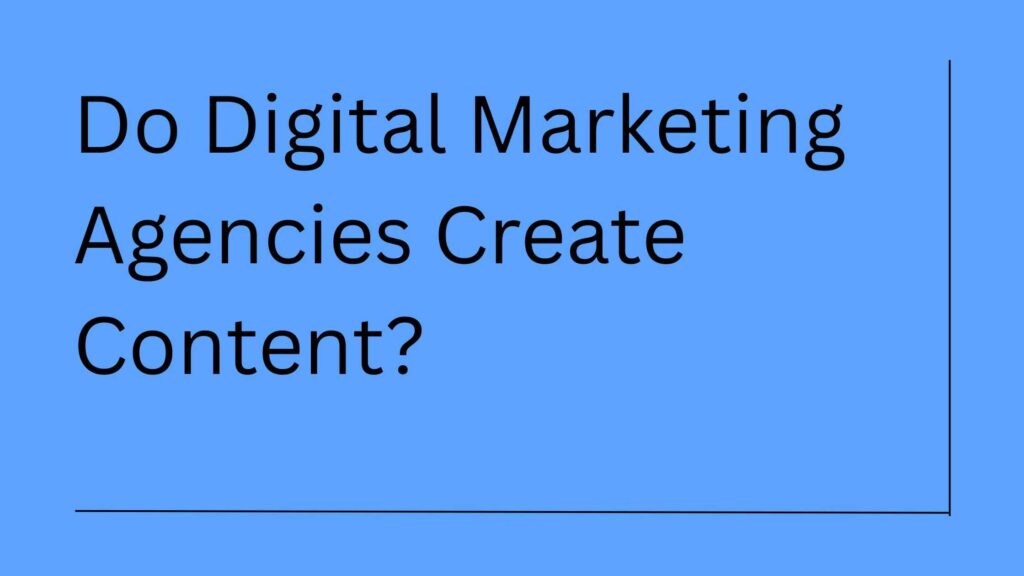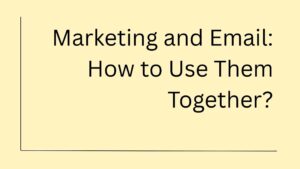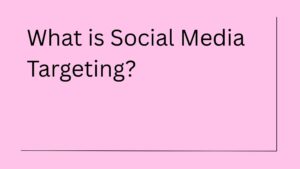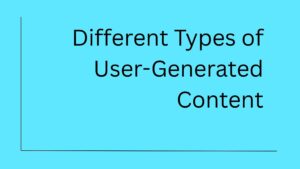The short answer is yes, digital marketing agencies absolutely create content. In fact, content creation has become one of the core services that most modern agencies offer their clients.
Content isn’t just something agencies do on the side anymore. It’s central to how they help businesses grow online. Whether it’s blog posts, social media content, videos, or email campaigns, agencies are deeply involved in creating the material that keeps brands visible and engaging.
The real question isn’t whether agencies create content, but rather how they do it, what types of content they produce, and why businesses choose to work with agencies for content creation instead of handling it in-house. Understanding what agencies actually do when it comes to content can help you decide if working with one makes sense for your business.
Why Do Digital Marketing Agencies Create Content?
Digital marketing has evolved significantly over the past decade. The days of simply running ads and hoping for the best are long gone. Modern digital marketing requires consistent, high-quality content across multiple channels.
Agencies recognized this shift early. As search engines started prioritizing quality content and social media became essential for brand visibility, agencies had to adapt. Content creation went from being an optional add-on service to becoming fundamental to almost every campaign they run.
The reality is that effective digital marketing depends on having something valuable to share. You can’t run a social media strategy without content to post. You can’t improve SEO without blog posts and web pages. You can’t do email marketing without well-written emails. Content fuels every other marketing activity.
Agencies also understand that most businesses struggle with consistent content creation. Business owners and internal teams are busy running the actual business. Finding time to write blog posts, create graphics, and produce videos while managing daily operations is challenging. Agencies fill this gap by providing dedicated resources focused entirely on content production.
What Types of Content Do Agencies Create?
Digital marketing agencies produce a wide variety of content types depending on their clients’ needs and marketing strategies.
Blog Posts and Articles
This remains one of the most common content types agencies create. Blog content serves multiple purposes: it improves Search Engine Optimization(SEO), establishes thought leadership, educates customers, and drives traffic to websites.
Agencies typically research topics relevant to the client’s industry, identify keywords to target, and produce articles optimized for both search engines and human readers. The frequency varies based on the client’s budget and strategy, but many agencies produce anywhere from 4 to 20+ blog posts monthly for their clients.
Social Media Content
Social media management often includes content creation. Agencies develop post copy, create or source images, design graphics, and sometimes produce short videos specifically for platforms like Instagram, Facebook, LinkedIn, and TikTok.
This involves understanding each platform’s unique requirements and audience preferences. What works on LinkedIn doesn’t necessarily work on TikTok, so agencies tailor content accordingly.
Website Copy
When agencies build or redesign websites, they often write the copy for those sites. This includes homepage content, service pages, about pages, and product descriptions.
Effective website copy requires balancing SEO considerations with persuasive messaging that converts visitors into customers. Agencies bring expertise in both areas.
Email Marketing Content
Email remains one of the highest ROI marketing channels, and agencies frequently create email content for their clients. This includes newsletter content, promotional emails, automated sequence copy, and transactional email templates.
Video Content
Video has become increasingly important across all digital channels. Some agencies produce video content directly that goes well with the marketing plans, while others script and plan videos that clients or production partners execute.
This ranges from social media videos and YouTube content to explainer videos and video ads.
Infographics and Visual Content
Complex information often communicates better visually. Agencies create infographics, charts, diagrams, and other visual content that simplifies difficult concepts and performs well on social media and in blog posts.
Whitepapers and Ebooks
For B2B clients especially, agencies often produce longer-form content like whitepapers, ebooks, and comprehensive guides. These serve as lead magnets and demonstrate expertise.
Ad Copy
Whether it’s Google Ads, Facebook Ads, or display advertising, agencies write the copy that appears in paid campaigns. This highly specialized form of content writing focuses on maximizing conversions within strict character limits.
How does a Marketing Agency Approach Content Creation?
Understanding the process agencies use to create content reveals why many businesses find value in working with them.
Strategy Development First
Good agencies don’t just start creating random content. They begin with strategy. This involves understanding the client’s business goals, target audience, competitive landscape, and current market position.
Content strategy answers questions like: Who are we trying to reach? What problems do they have? What content will resonate with them? Where should we distribute this content? How will we measure success?
Without this strategic foundation, content becomes random and ineffective.
Research and Planning
After strategy comes research, agencies research relevant topics, identify trending subjects in the client’s industry, analyze what competitors are doing, and discover the questions potential customers are asking.
Keyword research plays a major role here for content meant to improve SEO. Agencies use tools to identify search terms people actually use and build content around those terms.
Content Calendar Creation
Agencies typically create content calendars that plan out what content will be produced and when. This ensures consistency and allows for strategic timing around product launches, seasonal trends, or industry events.
Content calendars help clients see what’s coming and provide structure to the content creation process.
Production Process
The actual creation process varies by agency, but generally involves several steps:
Writers or content creators produce initial drafts based on outlines and briefs. These drafts incorporate the research and strategic direction established earlier.
Editors review content for quality, accuracy, and alignment with brand voice. Most agencies have multi-level review processes to catch errors and ensure quality.
Design teams create accompanying visuals when needed featured images for blog posts, graphics for social media, or layouts for ebooks.
SEO specialists optimize content for search engines, ensuring proper keyword usage, meta descriptions, and technical elements.
Client Review and Approval
Most agencies build in client review and approval steps. Clients see content before it’s published and can request revisions or provide feedback.
The specific approval process varies. Some clients want to review everything, while others trust the agency to publish directly after their internal quality checks.
Publishing and Distribution
Once approved, agencies typically handle publishing content to the appropriate channels, posting to the client’s blog, scheduling social media posts, sending emails, or uploading videos.
Performance Tracking
Good agencies don’t just create and forget. They monitor how content performs, tracking metrics like traffic, engagement, conversions, and SEO rankings. This data informs future content decisions.
The Team Behind Agency Content Creation
Content creation at agencies isn’t a one-person job. Multiple specialists typically contribute to the content clients receive.
Content Strategists
These professionals develop the overarching content strategy and ensure all content aligns with client goals. They make decisions about topics, formats, and distribution channels.
Writers and Copywriters
Writers produce the actual content, blog posts, articles, website copy, and longer-form content. Copywriters specialize in persuasive, conversion-focused writing for ads, landing pages, and emails.
Many agencies employ multiple writers with different specializations. Some excel at technical B2B content, others at consumer-focused lifestyle content.
Editors
Editors review content for grammar, style, accuracy, and brand consistency. They ensure quality standards are met before content goes to clients or gets published.
SEO Specialists
These team members optimize content for search engines. They conduct keyword research, ensure technical optimization, and track search performance.
Graphic Designers
Designers create visual elements that accompany written content, featured images, infographics, social media graphics, and layouts for longer documents.
Social Media Managers
These specialists understand platform-specific content requirements and audience behaviors. They often adapt content for different social channels and manage posting schedules.
Project Managers
Project managers coordinate the content creation process, ensuring deadlines are met, quality standards are maintained, and client communication is handled smoothly.
The specific team structure varies by agency size and specialization, but most agencies have dedicated resources for each aspect of content creation rather than expecting one person to do everything.
Why Businesses Choose Marketing Agencies for Content Creation?
Understanding why companies outsource content creation to agencies rather than handling it internally reveals the value agencies provide.
Access to Diverse Expertise
Building an in-house team with all the specializations agencies provide is expensive and often impractical. Agencies offer access to strategists, multiple writers with different expertise, designers, SEO specialists, and editors, all for less than hiring those roles full-time.
Scalability
Content needs fluctuate. Agencies can scale production up or down based on business needs without the complications of hiring or laying off staff.
During product launches or busy seasons, agencies can increase output. During slower periods, clients can reduce content volume without maintaining excess capacity.
Consistency
Many businesses struggle with consistent content production. Internal teams get pulled into other priorities, and content creation gets delayed or skipped.
Agencies are specifically contracted to deliver content consistently. This is their job, not something they do when they have spare time.
Fresh Perspectives
Internal teams can develop tunnel vision, creating similar content repeatedly or missing opportunities because they’re too close to the business.
Agencies bring outside perspectives, notice things internal teams overlook, and draw on experience from multiple clients and industries.
Tools and Resources
Quality content creation requires various tools, keyword research platforms, content management systems, design software, analytics tools, and more.
Agencies already have these tools and know how to use them effectively. Businesses avoid the cost and learning curve of acquiring and mastering these resources themselves.
Time Savings
Perhaps the most straightforward benefit is time. Business owners and internal teams can focus on their core competencies while agencies handle content creation.
The time saved often justifies the agency cost, especially when you consider the opportunity cost of internal resources spending time on content instead of their primary responsibilities.
What to Expect When Working with an Agency for Content?
If you’re considering working with an agency for content creation, knowing what to expect helps ensure a successful relationship.
Initial Discovery and Strategy Phase
Expect agencies to spend considerable time upfront learning about your business, audience, and goals before creating any content. This isn’t wasted time; it’s essential for creating effective content.
Regular Communication
Good agency relationships involve regular communication. This might include weekly check-ins, monthly strategy reviews, and ongoing collaboration on content direction.
Iteration and Refinement
The first pieces of content might not be perfect. Agencies need time to learn your brand voice, understand what resonates with your audience, and refine their approach. Expect an adjustment period.
Performance-Based Adjustments
As content is published and performance data accumulates, agencies should adjust strategy based on what’s working and what isn’t. Content strategy evolves based on results.
Investment Required
Quality content creation isn’t cheap. Agencies charge what reflects the expertise, time, and resources involved. Budget appropriately for the value you’re receiving.
The Future of Agency Content Creation
Content creation will remain central to what digital marketing agencies do, but how they do it continues evolving.
Artificial intelligence is beginning to play a role in content creation, though primarily as a tool to assist human creators rather than replace them. Agencies are exploring how AI can handle research, create outlines, or produce first drafts that humans then refine.
Video and interactive content are becoming more important as audiences increasingly prefer these formats. Agencies are expanding their capabilities to produce more sophisticated multimedia content.
Personalization is another frontier. Rather than creating one-size-fits-all content, agencies are developing ways to create personalized content experiences for different audience segments.
Despite these changes, the fundamental truth remains that businesses need quality content, and agencies have the expertise, resources, and processes to create it effectively.
Conclusion
Digital marketing agencies definitely create content, and for most agencies, it’s become one of their primary services. They create everything from blog posts and social media content to videos, emails, and website copy.
Agencies approach content creation strategically, with specialized teams handling different aspects of the process. They provide expertise, consistency, scalability, and an outside perspective that many businesses struggle to maintain internally.
Working with an agency for content creation means investing in professional resources dedicated to producing material that supports your marketing goals. While it requires budget and good communication, the results are consistent, high-quality content that drives business outcomes, often justifying the investment.
The question isn’t really whether agencies create content anymore. The better question is whether working with an agency for content creation makes sense for your specific business situation. For many companies, especially those struggling with consistent content production or lacking specialized content expertise internally, agencies provide valuable solutions that free up internal resources while delivering better results than they could achieve alone.

The Chief Author and Editor at Intothecommerce. As a seasoned expert in digital marketing, I direct the site’s strategic content and ensure every piece meets the highest industry standards. My insights drive our coverage on SEO, paid media, and cutting-edge marketing technology.





3 thoughts on “Do Digital Marketing Agencies Create Content? Your Questions Answered”
Hi, Finn here. This is an interesting take on an agency’s content creation, where the service seeker questions the agency that provides one.
That multi-platform helpful content sounds serious to a robust player in considering a clean content pool; this is wild. Curious about the quick content creation methods!
Around everywhere, nothing can be compared to offering good content to a brand. Because brands love content, it’s why, in my knowledge, many marketing agencies offer good content creation services which ensure scalable results, no matter what platform they’ve been posted on.